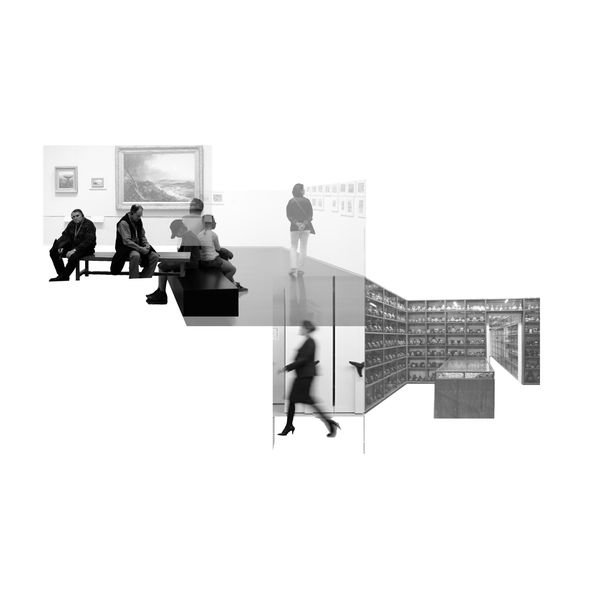Museum of People / Theatre of Place
Kyoto, Japan
MArch2 Final Thesis Design Project

The museum of the future or the future of the museum
The project attempts to form a vision for the museum’s tomorrow. This includes the introduction of performance as well as public participation as a medium for display in an attempt to change the static nature of the current model. The collaboration between curators and visitors, or performers and audience challenges the traditional formal model of the museum and pushes the boundaries towards a more collective experience.
‘’An individual is not distinct from his place; he is that place.’’
Marcel.

Theoretical Agenda
Kyoto’s rich history is highly projected through the dozens of institutions in the form of museums, galleries, libraries, or universities. What all these however fail to project is the essence that constitutes the city a ‘place’. In the outbreak of an era of ‘non-places’, the proposal focuses on the ‘placeness’ of Kyoto. Informed by a phenomenological research on the notion of place, the proposal emerged from the position that place as a notion solely exists in people’s minds. The essence that transforms a mere space into a place lies on the human conceptions about it. Simply said, a place is the human experience of an environment, rather than the environment itself.




The body as exhibit / nous as a living archive
In this context, I argue that a museum of a place should not rely on objects presented as exhibits to tell that place’s history, but rather on the people and the way they experience it. People are the real place-makers and nothing can better tell a place’s story than them. This approach places citizens themselves on a main display, and turns them as the exhibits themselves. At the same time, people’s ability to maintain these experiences alive through human cognitions consists them the archive of this new museum. People’s memory becomes an immaterial, intangible living archive.





Shijo Kawara
The site is located in the East quarter of the city of Kyoto, and the vibrant area of Shijo Kawara. The area spreads through the banks of river Kame, a vital landmark for the whole of Kyoto. Shijo Kawara is also known for being the birthplace of Japanese 'Kabuki' theatre, and is home to Minami-za, the country's first Kabuki theatre.

















